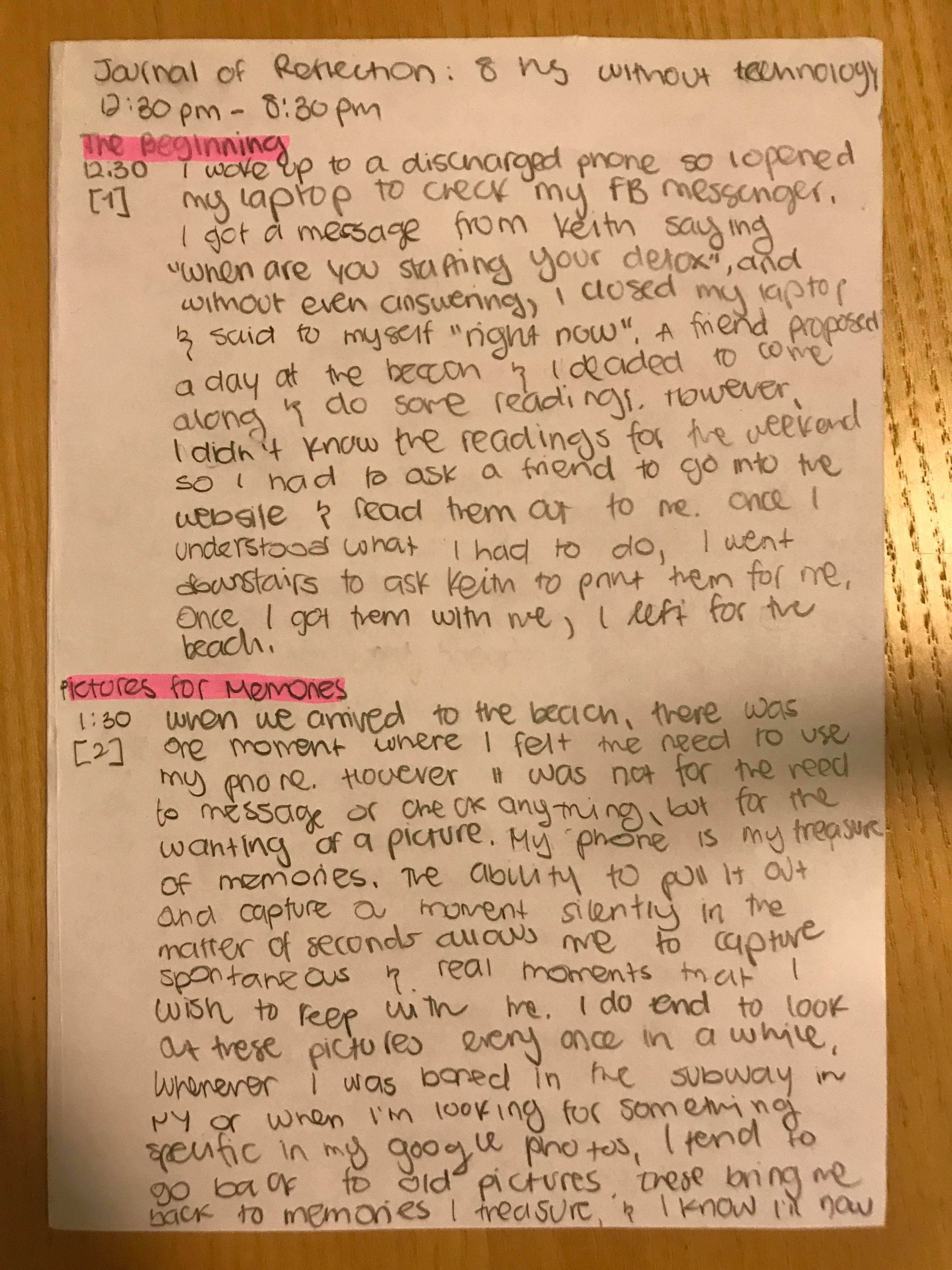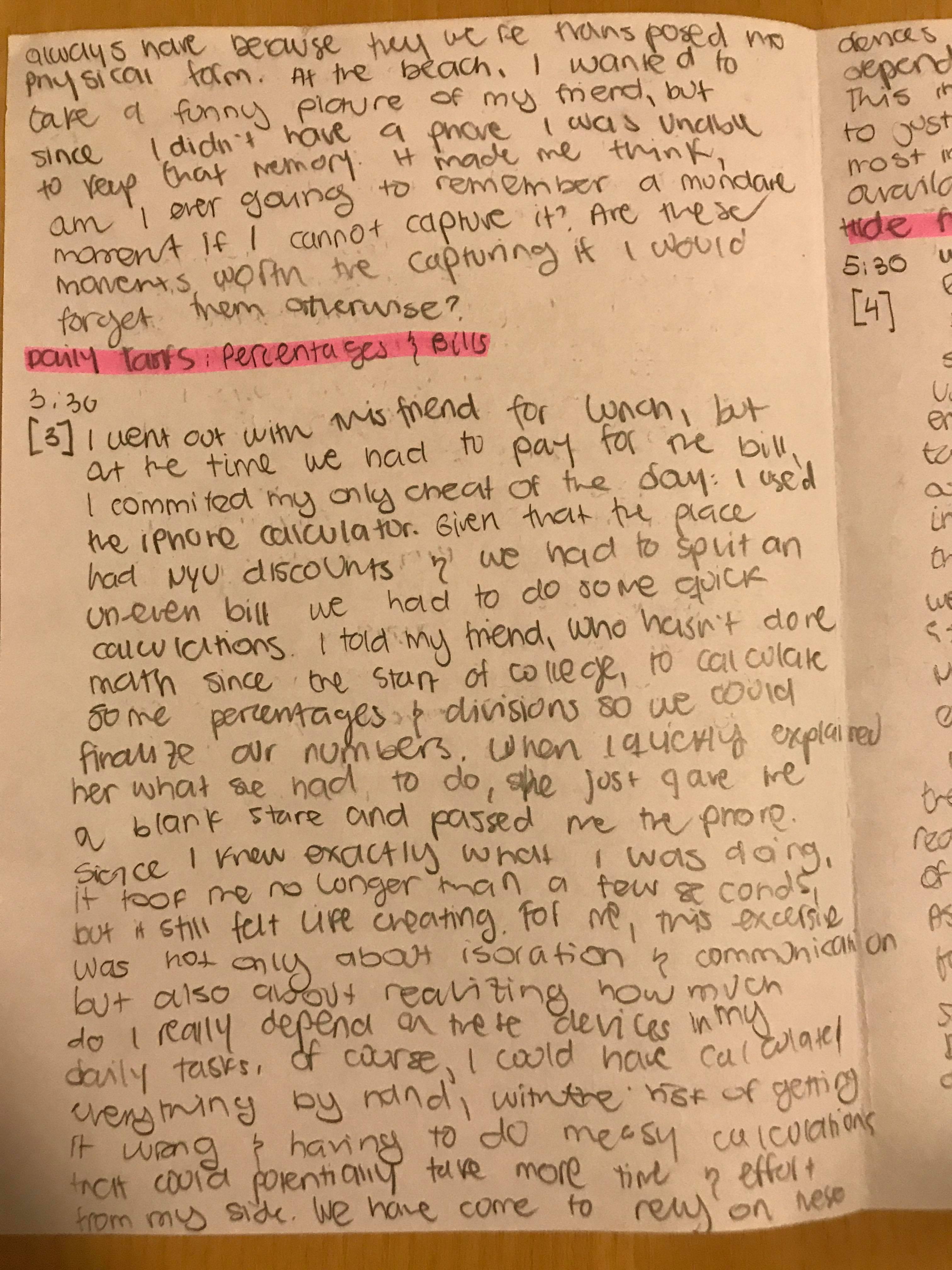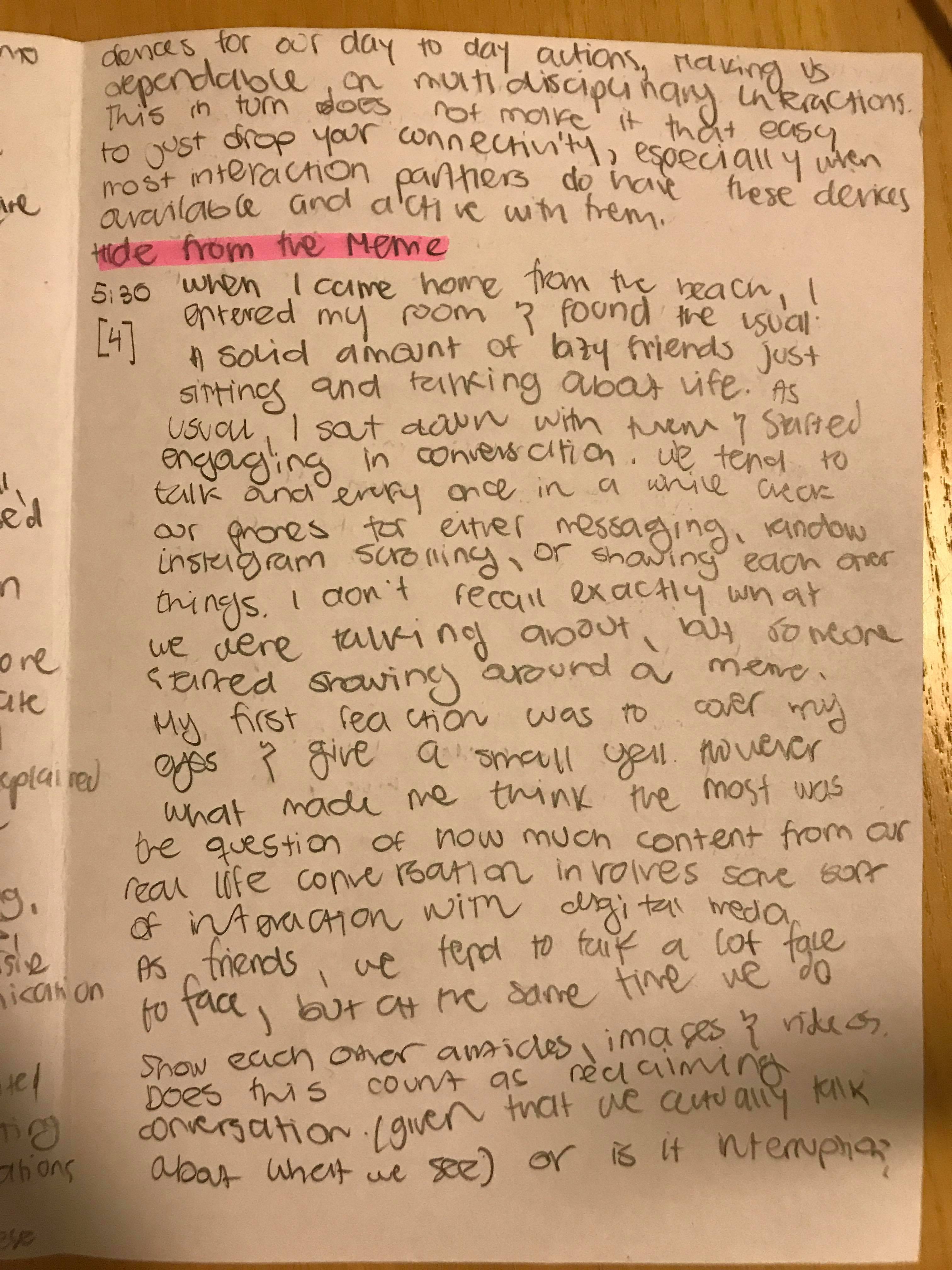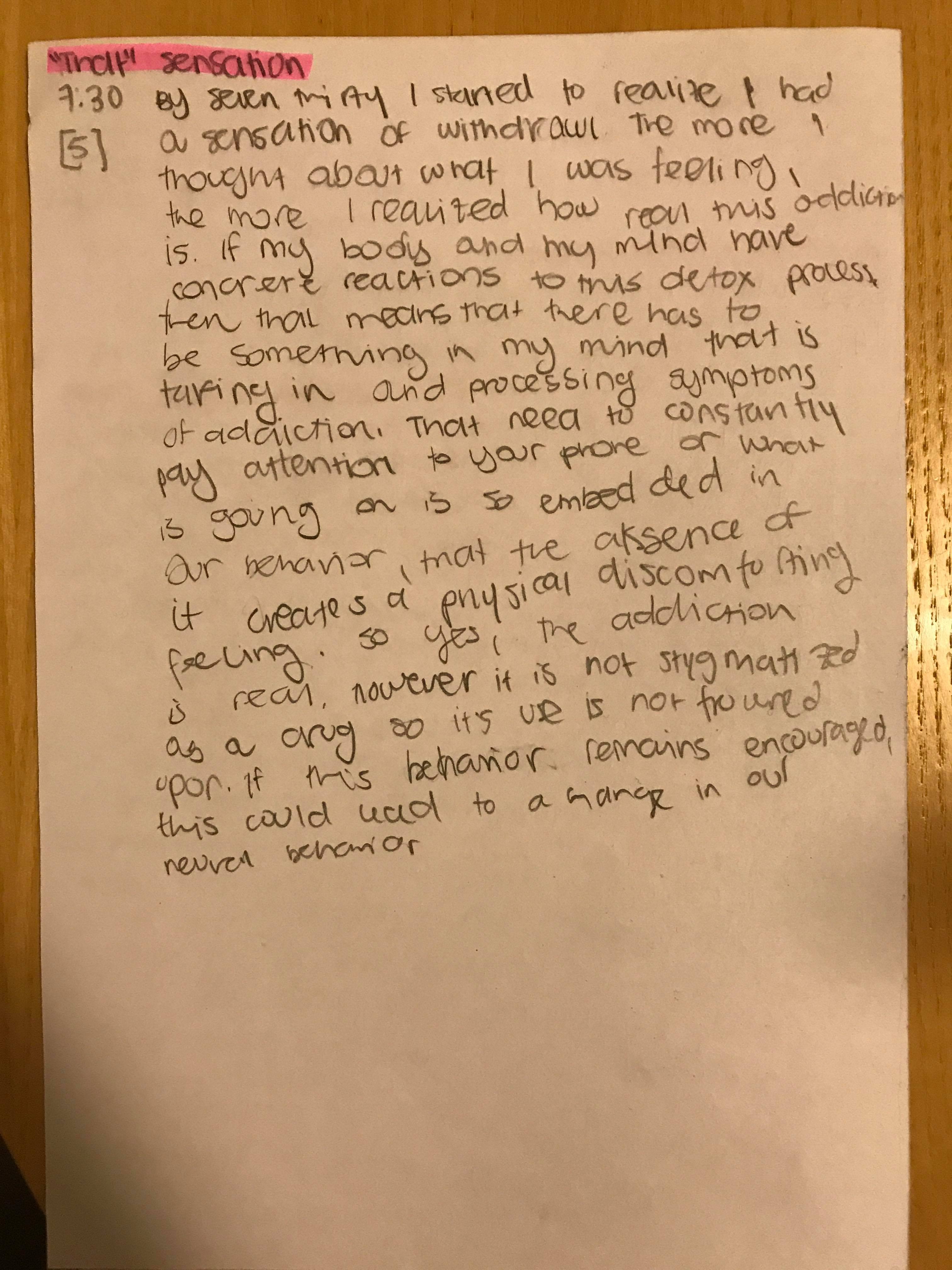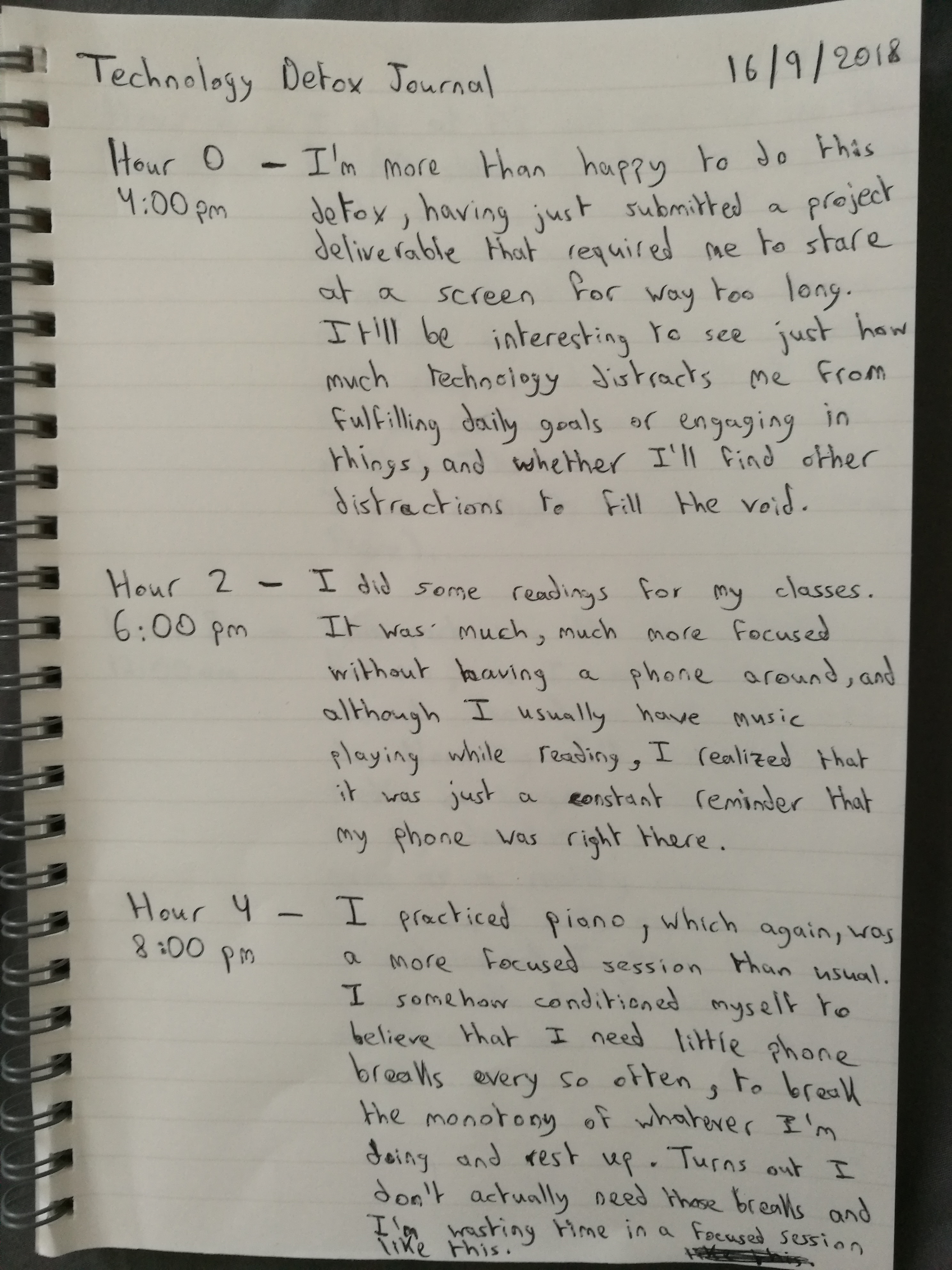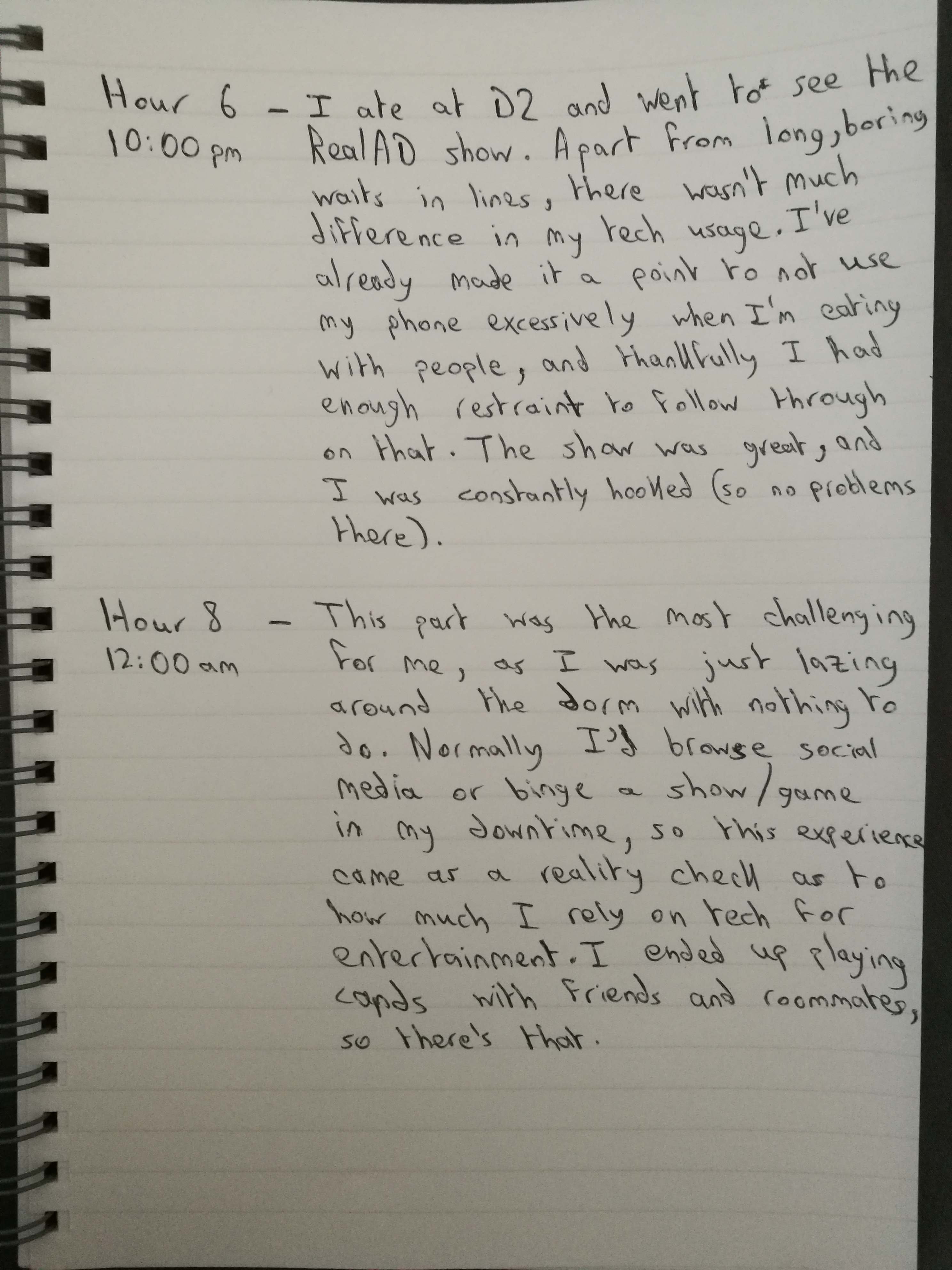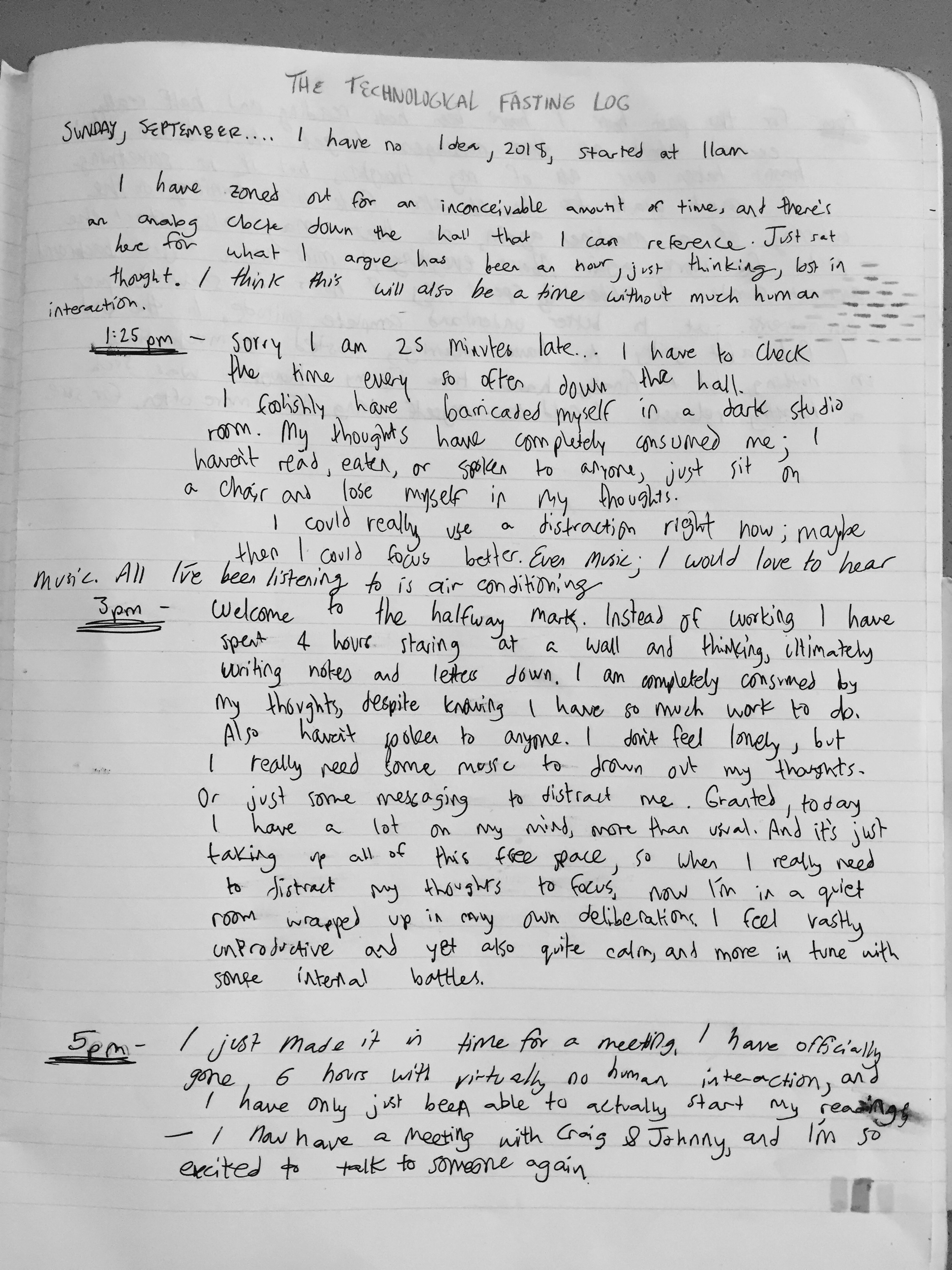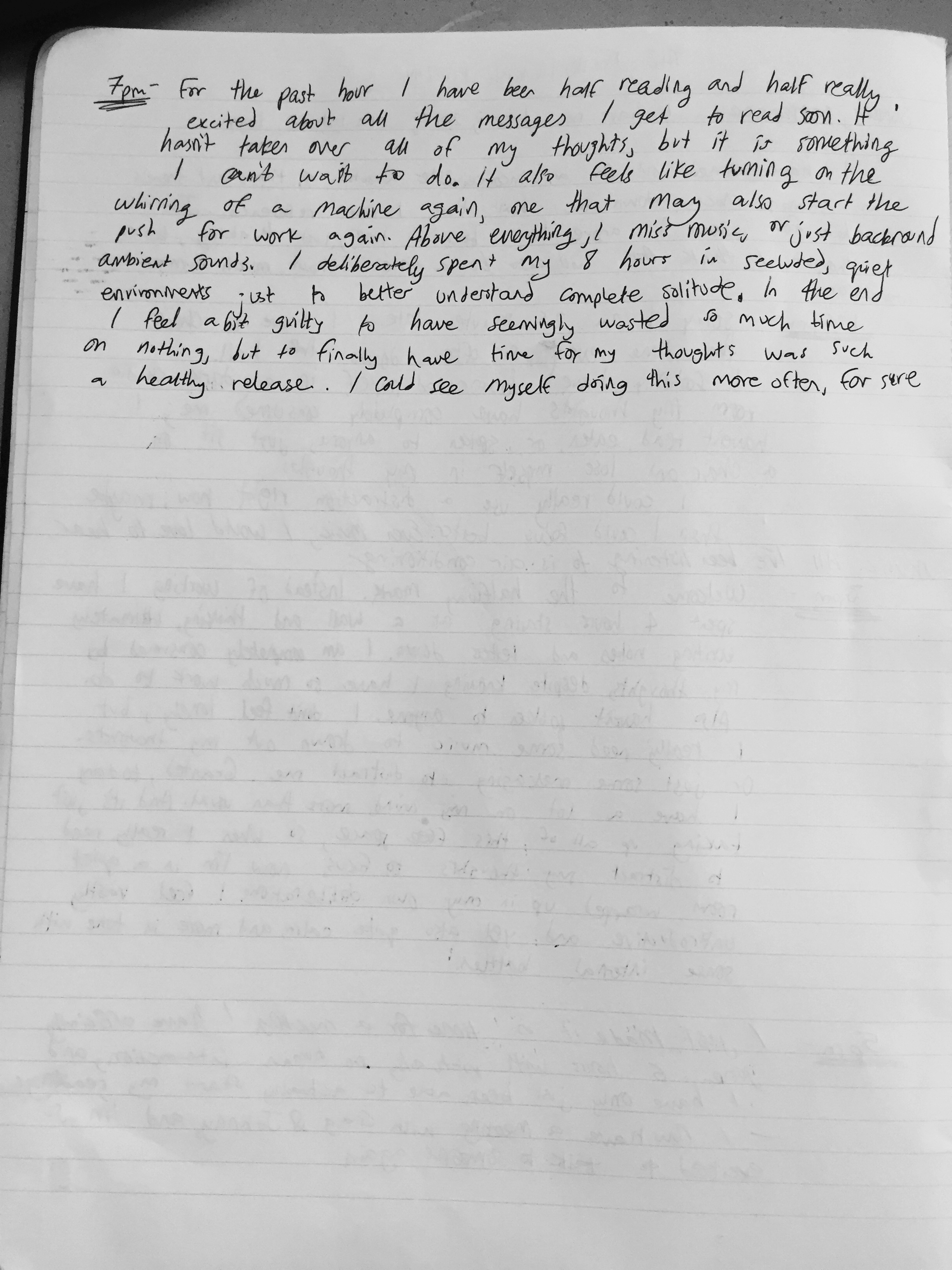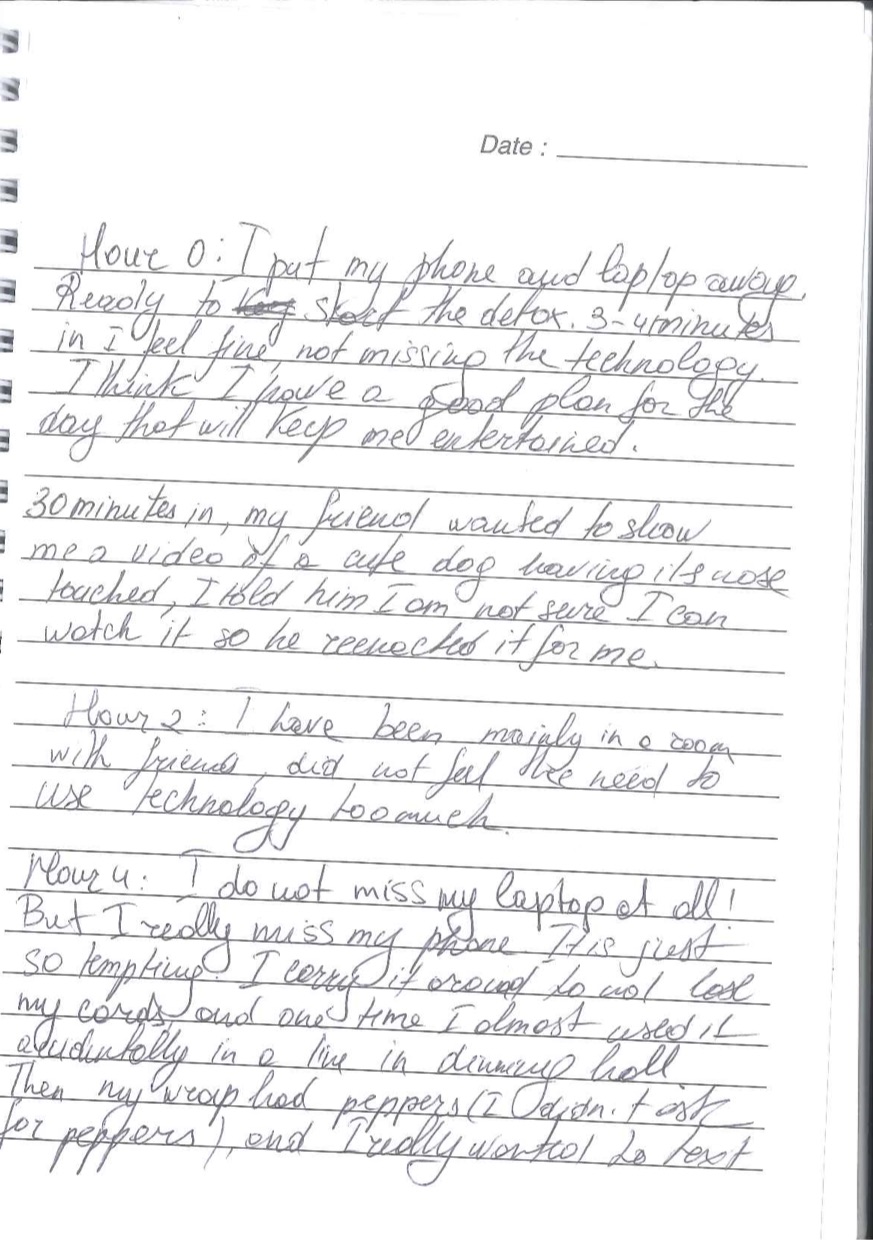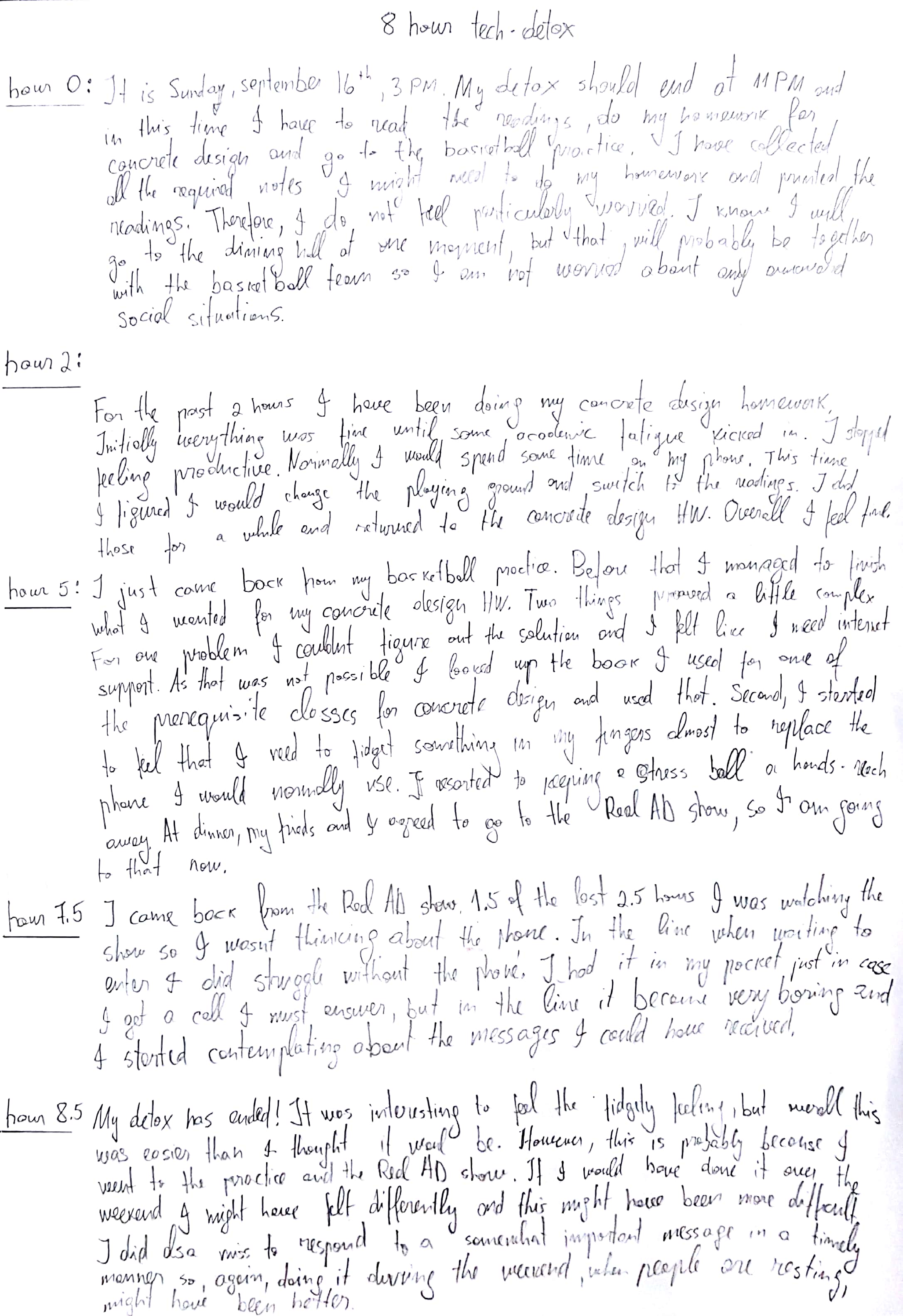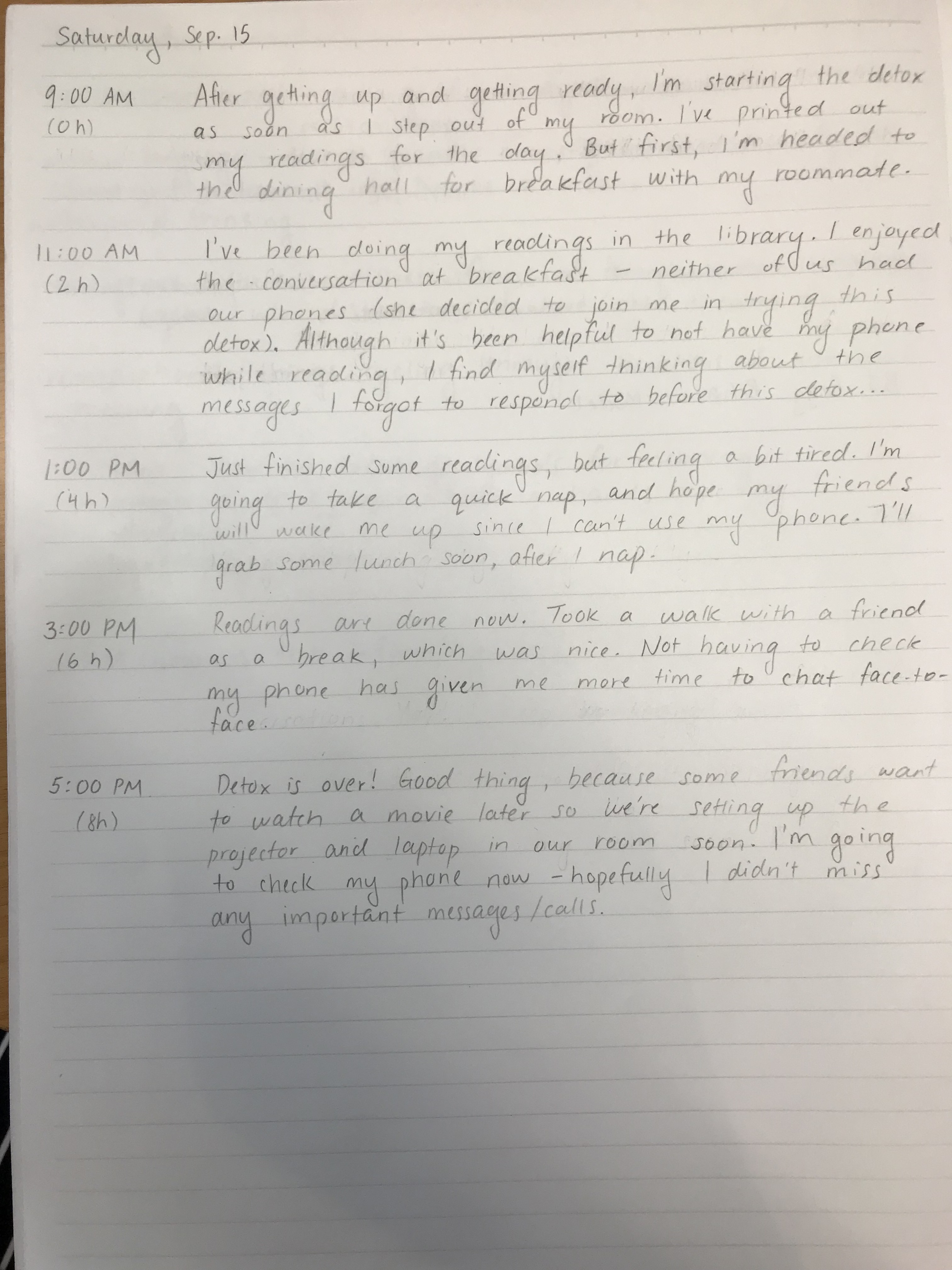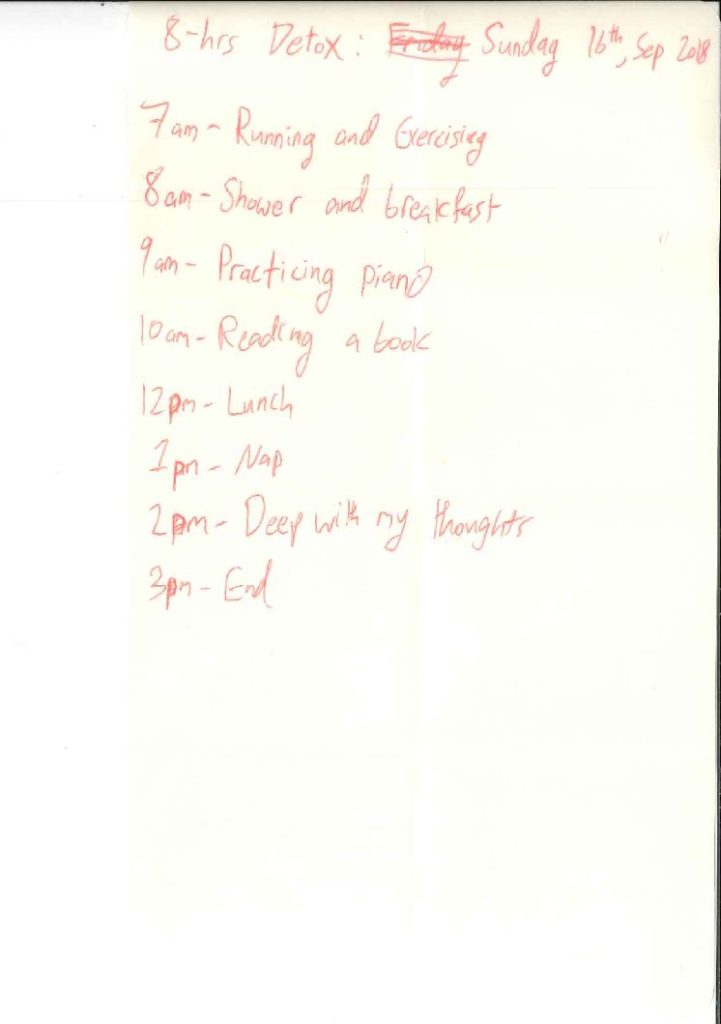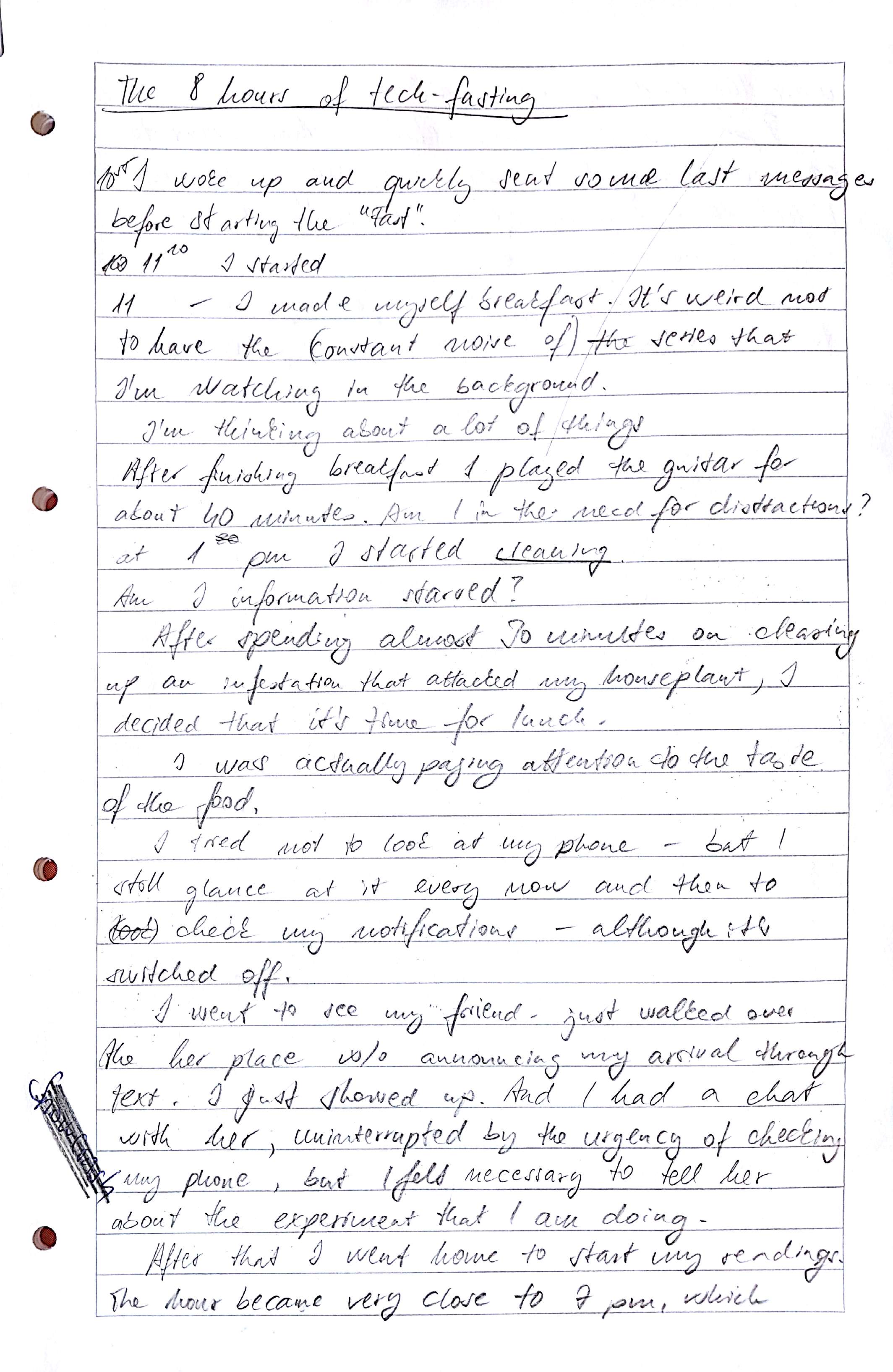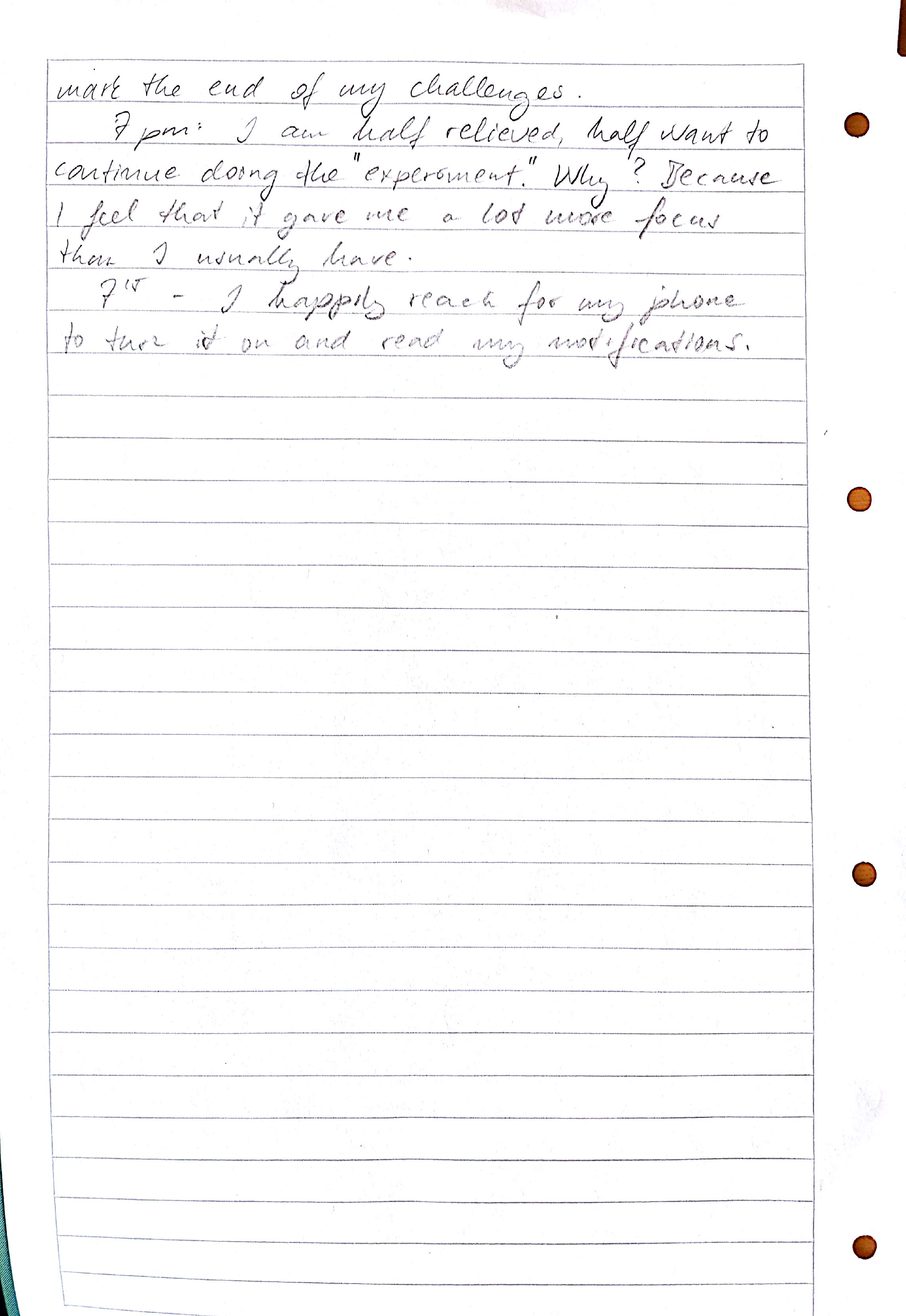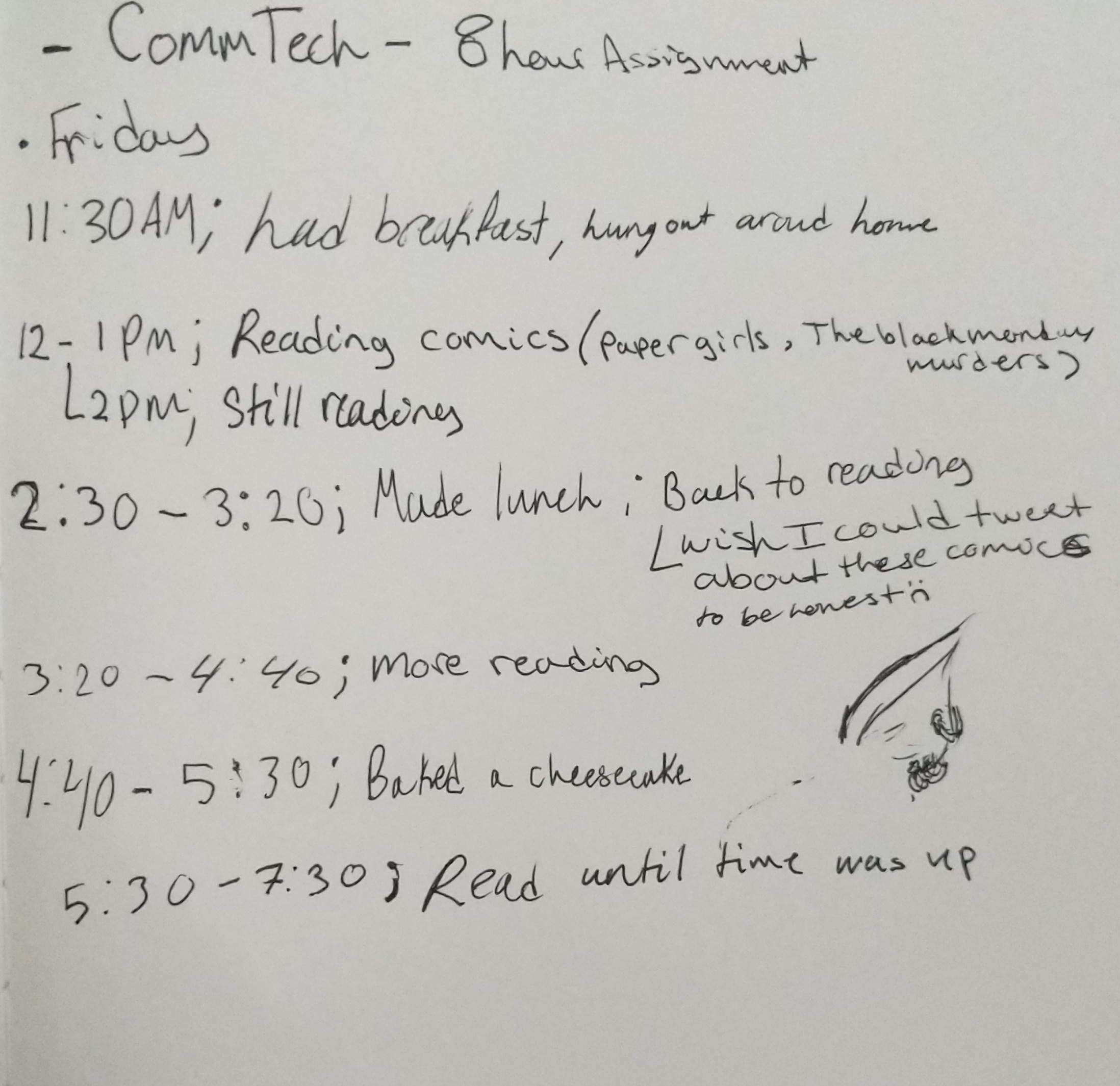After going through and 8 hour technological detox and reading “Reclaiming Conversation” and “The Machine Stops”, I’ve obtained a hit of awareness of my own behavior and my surroundings.
Regarding my moments of reflection in the single chair, I’ve come to realize that these moments (when I am not in detox) happen whenever I’m going from one place to another, when I don’t have access to wifi, or when I’m going to bed and leaving my phone on the side. During my detox, I was going through a mental debate about some interactions I had over the week that demanded some reflection. I realized that without my distractions available for a long period of time, I just wanted to get out of my own head because it was mentally tiring to constantly think about the same thing without a solid conclusion. However, when I inevitably pushed myself to keep thinking about it, I realized I came to clarity with my thoughts when I further thought of who I was as a person and my own values exclusive of any situation.
I normally consider myself as a person who is not into the world of social media of mass exposure (anymore, I’ve taken this approach for about a year now after realizing the superficiality of many posts). However after this excersise, I’ve realized how large my contained use of social media is. Even if I interact with top 15 people on a daily basis, the amount of media content is large.
My friends and I have this common behavior of getting together hanging out in my living room, which I feel leads to a lot of the conversations that Turkle states as meaningful. We tend to engage in complicated debates, understand expressions, and develop empathy through hours of just sitting around in our couches. However, we do have our phones, and sometimes our laptops (because we’re supposed to be working) with us, and there will be points where all of us are just quietly surfing the web. I’ve also come to realize how used we are to sharing pictures, videos, and links. These are either conversation starters, research for validation, or just sharing funny memes. Given that 90% of our group lives in the same building (and we meant it that way), we tend to get together on our free time as opposed to having conversations through chats. Nevertheless, something similar as the “rule of three” tends to apply, where we’ll be 10 of us in a room and at least two people are on their phones at points in time. I’ve also come to realize that when a debate gets heated, those who don’t want to get involved hide behind their own screens. In this case though I don’t believe it expresses a “keep it light” but more of an “I don’t care about this argument, let me go to something that will grasp my attention”. The search for something that will grasp our attention is always there, the only reason we stay together half-working for so many hours is because we’ll eventually engage in a conversation that will last for a while and then we’ll go back to work or to our phones.
It is a different thing to be forced into a detoxification than to read about the effects of technology and having to use your own awareness and power of will to act upon the knowledge you just obtained. Somehow, the detox is easier. You know it’s a goal you know you can achieve, but more of the fact that you know that it will end after a short period of time. With awareness, you have the choice of keeping your life the way it is, which is easier, or pinpoint behaviors to work on. As Turkle said, there shouldn’t need a tower of phone games to make us interact, and there ideally shouldn’t be an 8 hour detox in order to realize how deeply embedded these technologies are in our day to day. However what matters most is what we do after this period of reflection, how we improve our interactions, and most importantly, how we make sure this awareness doesn’t fade away
